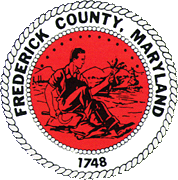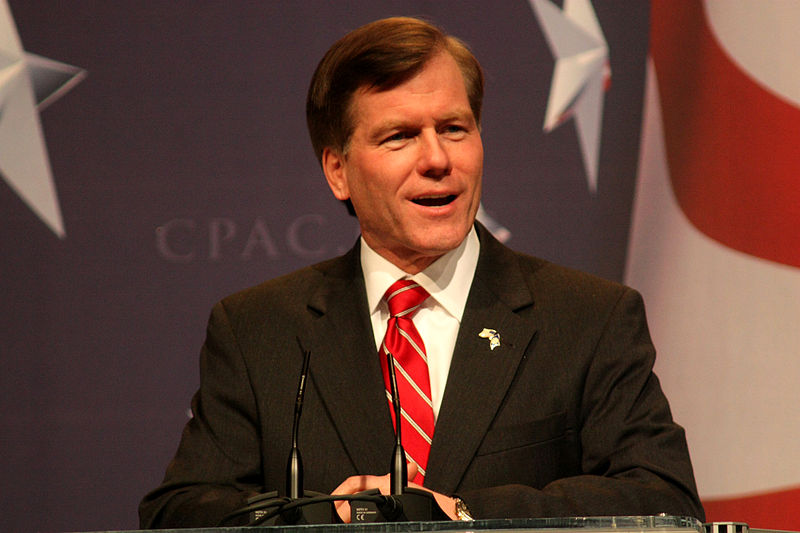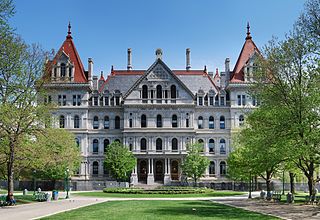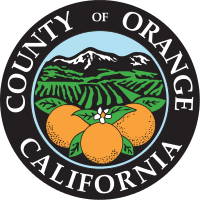July 7, 2016 •
California FPPC to Review Political Reform Act
The California Fair Political Practices Commission (FPPC) has announced a project with the University of California and California Forward to update the Political Reform Act (PRA). The FPPC plans to submit revisions based on public input from this project to […]
 The California Fair Political Practices Commission (FPPC) has announced a project with the University of California and California Forward to update the Political Reform Act (PRA).
The California Fair Political Practices Commission (FPPC) has announced a project with the University of California and California Forward to update the Political Reform Act (PRA).
The FPPC plans to submit revisions based on public input from this project to the Legislature in 2017. A webinar is scheduled for Thursday, July 14, at 10 a.m. with FPPC Chair Jodi Remke to discuss the project. Interested persons can register for the webinar at www.cafwd.org/PRAtalk.
An attempt to place an initiative on the November ballot to overhaul state campaign finance and ethics regulations has failed. The Keep Idaho Elections Accountable campaign, chaired by Democrat Holli Woodings, failed to collect the 48,000 signatures needed, coming up […]
 An attempt to place an initiative on the November ballot to overhaul state campaign finance and ethics regulations has failed.
An attempt to place an initiative on the November ballot to overhaul state campaign finance and ethics regulations has failed.
The Keep Idaho Elections Accountable campaign, chaired by Democrat Holli Woodings, failed to collect the 48,000 signatures needed, coming up roughly 6,000 short. The initiative would have changed contribution limits, created stricter penalties for violations, and prohibited lobbyists from giving gifts valued at more than $50.
The group collected 79,000 signatures, but many were disqualified due to a lack of a current address.
July 7, 2016 •
Thursday News Roundup
Lobbying “Gov2Gov: The lobbying that falls under the radar” by Mike Maciag for Governing Rhode Island: “Raimondo: Lobbying law makes rules ‘clear, simple, consistent and transparent’” by Jennifer Bogdan for Providence Journal Campaign Finance Alabama: “Koch Brothers’ Plight Likened to […]
 Lobbying
Lobbying
“Gov2Gov: The lobbying that falls under the radar” by Mike Maciag for Governing
Rhode Island: “Raimondo: Lobbying law makes rules ‘clear, simple, consistent and transparent’” by Jennifer Bogdan for Providence Journal
Campaign Finance
Alabama: “Koch Brothers’ Plight Likened to That of Civil Rights Workers in the 1950s” by John Dunbar for Center for Public Integrity
Arizona: “Possible Hack Shuts Down Online Portal to Public Campaign Financing” by Howard Fischer (Capitol Media Services) for East Valley Tribune
Minnesota: “Minnesota Campaign Watchdog Agency Director to Retire” by Rachel Stassen-Berger for St. Paul Pioneer Press
Ethics
“Is the Supreme Court Clueless About Corruption? Ask Jack Abramoff” by Carl Hulse for New York Times
Kentucky: “Lexington’s Ethics Act to Add Domestic Partners to Nepotism Ban” by Beth Musgrave for Lexington Herald-Leader
New York: “In Inquiry into Ex-Cuomo Aide, Disclosure Form Only Adds Mystery” by Vivian Yee for New York Times
South Carolina: “S.C. Ethics Commission Chief to Retire” by Avery Wilks for The State
Elections
“Nate Silver Is Happy to Be Wrong” by Glenn Thrush for Politico
The Executive Branch Ethics Commission has launched a new payment application for the 2016 lobbyist employer registration fee. The application is available on any mobile device; however, updated registration statements must be submitted directly to the Ethics Commission. Payments may […]
 The Executive Branch Ethics Commission has launched a new payment application for the 2016 lobbyist employer registration fee.
The Executive Branch Ethics Commission has launched a new payment application for the 2016 lobbyist employer registration fee.
The application is available on any mobile device; however, updated registration statements must be submitted directly to the Ethics Commission.
Payments may be made through the application from July 1 to July 31.
July 6, 2016 •
Lexington-Fayette County Council Mulls Changes to Ethics Act
The Urban County Council is reviewing proposed changes to Lexington, Kentucky’s ethics act. The changes would be the first major overhaul of the act since 1994, when it was first enacted. Among the proposals, the mayor will be given sole […]
 The Urban County Council is reviewing proposed changes to Lexington, Kentucky’s ethics act. The changes would be the first major overhaul of the act since 1994, when it was first enacted.
The Urban County Council is reviewing proposed changes to Lexington, Kentucky’s ethics act. The changes would be the first major overhaul of the act since 1994, when it was first enacted.
Among the proposals, the mayor will be given sole authority to appoint members of the ethics commission, with confirmation by the Council, and same-sex and domestic partners will be included in the financial disclosure requirements and prohibition against nepotism. The issue of lobbyist registration was also discussed but was dismissed because most people speaking to the council are private citizens rather than paid lobbyists.
No vote was held, but the changes will be discussed again at the Council’s November meeting.
Photo of the Lexington-Fayette Urban County Government Building by Nyttend on Wikimedia Commons.
July 6, 2016 •
Wednesday Government Relations News
Lobbying “The Lobbying Reform That Enriched Congress” by Isaac Arnsdorf for Politico “Lockheed’s Top Government Affairs Official Not Registered as Lobbyist” by Austin Wright and Jeremy Herb for Politico Minnesota: “Lobbying in Minnesota: Spending has nearly doubled since 2002” by […]
 Lobbying
Lobbying
“The Lobbying Reform That Enriched Congress” by Isaac Arnsdorf for Politico
“Lockheed’s Top Government Affairs Official Not Registered as Lobbyist” by Austin Wright and Jeremy Herb for Politico
Minnesota: “Lobbying in Minnesota: Spending has nearly doubled since 2002” by Rachel Stassen-Berger for St. Paul Pioneer Press
New York: “JCOPE Shut Down in Lobbying Reform” by Michelle Kraidman for Queens Chronicle
Oregon: “Ethics Watchdog Wants Tighter Lobbyist Registration Rules – Will Kate Brown Say Yes?” by Hillary Borrud for Portland Oregonian
Campaign Finance
Michigan: “Unions Win Injunction Blocking Michigan Fundraising Law” by Jonathan Oosting for Detroit News
Montana: “Call for Special Legislative Session Fails” by Troy Carter for Bozeman Daily Chronicle
Ethics
“F.B.I. Director James Comey Recommends No Charges for Hillary Clinton on Email” by Mark Lander for New York Times
Colorado: “Independent Ethics Commission Shuts Down Public Livestream of Meeting” by Marianne Goodland for Colorado Independent
Connecticut: “Anthem-Cigna Controversy Exposes Gaps in Ethics Rules” by Mark Pazniokas for Connecticut Mirror
Hawaii: “ACLU Lawyer to Be State Ethics Chief” by Rui Kaneya for Honolulu Civil Beat
Idaho: “Major Campaign Finance Reform Initiative Falls Short, Won’t Be on Ballot” by Betsy Russell for Spokane Spokesman-Review
The Oregon Government Ethics Commission has asked Gov. Kate Brown to introduce legislation in 2017 to strengthen lobbying registration requirements. The commission wants to crack down on the registration exception that allows persons spending less than 24 hours or $100 […]
 The Oregon Government Ethics Commission has asked Gov. Kate Brown to introduce legislation in 2017 to strengthen lobbying registration requirements. The commission wants to crack down on the registration exception that allows persons spending less than 24 hours or $100 on lobbying per quarter to avoid registering as lobbyists.
The Oregon Government Ethics Commission has asked Gov. Kate Brown to introduce legislation in 2017 to strengthen lobbying registration requirements. The commission wants to crack down on the registration exception that allows persons spending less than 24 hours or $100 on lobbying per quarter to avoid registering as lobbyists.
Brown has until December 9, 2016 to review proposals from state agencies and file bills for the 2017 session.
The Frederick County Ethics Commission is working to revise its standard ethics procedures and will accept comments and suggestions via email through July 27, 2016. The following items are among the proposed changes: to establish standard procedures for filing ethics […]
 The Frederick County Ethics Commission is working to revise its standard ethics procedures and will accept comments and suggestions via email through July 27, 2016.
The Frederick County Ethics Commission is working to revise its standard ethics procedures and will accept comments and suggestions via email through July 27, 2016.
The following items are among the proposed changes: to establish standard procedures for filing ethics complaints; adopting a process for investigating complaints, including outlining appropriate behavior for commission members during this process; adding provisions for the issuance and enforcement of subpoenas; developing procedures for reconsidering or revising advisory opinions; and requiring annual training in ethics law for all public officials and their employees.
The commission will vote on the revised procedures on August 10.
July 5, 2016 •
Tuesday Lobbying and Campaign Finance News Update
Lobbying “The Lobbying Reform That Enriched Congress” by Isaac Arnsdorf for Politico Arizona: “Arizona Governor Fires State’s Contract Lobbyists” by Yvonne Wingett Sanchez for Arizona Republic Missouri: “Aldermen Vote Down Measure Banning Lobbyists on the Floor” by Rachel Lippmann for […]
 Lobbying
Lobbying
“The Lobbying Reform That Enriched Congress” by Isaac Arnsdorf for Politico
Arizona: “Arizona Governor Fires State’s Contract Lobbyists” by Yvonne Wingett Sanchez for Arizona Republic
Missouri: “Aldermen Vote Down Measure Banning Lobbyists on the Floor” by Rachel Lippmann for St. Louis Public Radio
Campaign Finance
“‘Feel Bern’ PAC Comes Under Scrutiny” by Megan Wilson for The Hill
Arizona: “Drive to Expand Public Campaign Financing Fizzles” by Mary Jo Pitzl for Arizona Republic
Georgia: “Atlanta City Councilman Faces Hundreds of Campaign Finance Allegations” by Maggie Lee for Creative Loafing
Ethics
Hawaii: “ACLU Lawyer to Be State Ethics Chief” by Rui Kaneya for Honolulu Civil Beat
New York: “Operative Tied to Cuomo Is Accused of Bribing Judge to Get Favorable Rulings” by Vivian Yee for New York Times
July 1, 2016 •
News You Can Use Digest – July 1, 2016
National: Report: It’s harder to know who’s paying for political ads Star Tribune – Geoff Mulvilhill (Associated Press) | Published: 6/27/2016 A report by New York University’s Brennan Center finds the use of so-called dark money in several states has increased […]

National:
Report: It’s harder to know who’s paying for political ads
Star Tribune – Geoff Mulvilhill (Associated Press) | Published: 6/27/2016
A report by New York University’s Brennan Center finds the use of so-called dark money in several states has increased faster than in national elections. Across six states – Alaska, Arizona, California, Colorado, Maine, and Massachusetts – dark money expenditures rose by 38 percent between 2006 and 2014, outstripping the 34 percent rate of increase found in federal elections. And that does not include other categories of nontransparent outside money. The report defines “gray money” as expenditures by entities that do disclose their contributors, but who also list dark money organizations as donors, making it difficult or impossible to locate the original source of the money.
Two Transgender Candidates – Both Named Misty – Just Made History by Winning Primaries
Washington Post – Amber Phillips | Published: 6/29/2016
Primary voters in Utah and Colorado selected transgender women to run for spots in Congress next fall, a first in major-party American political history. Misty Snow will run against U.S. Sen. Mike Lee in Utah this November, while Misty Plowright will challenge U.S. Rep. Doug Lamborn in Colorado. Neither Snow nor Plowright sought to make their gender identities a campaign issue, instead focusing on progressive issues like getting money out of politics. Their wins come as transgender rights have been thrust into the national spotlight after contentious debates in states like North Carolina. “This is even more breathtaking considering the political climate today, the uphill curve to educate people about who transgender people are,” said Bob Witeck, a Washington, D.C.-based LGBT advocate.
Federal:
Bernie Sanders Campaign Showed How to Turn Viral Moments into Money
New York Times – Nick Corasaniti | Published: 6/24/2016
Like most modern campaigns, U.S. Sen. Bernie Sanders and his team relied on widely used digital fundraising tactics, like sending email solicitations and advertising online. They raised more than $61 million and acquired more than three million email addresses directly from digital ads. But the campaign was also able to harness social media networks – which, until recently, most candidates had used primarily for messaging purposes – and turn them into fundraising engines, allowing Sanders’ team to raise money almost exclusively online. The campaign raised roughly $216 million of its nearly $230 million total online.
Donald Trump and R.N.C. Crack Down on Rebelling Delegates
New York Times – Jeremy Peters | Published: 6/26/2016
Donald Trump’s campaign and the Republican National Committee (RNC) are moving quickly and aggressively to head off the fledgling effort to stage a revolt at their July convention in Cleveland, hoping to spare the party an embarrassing spectacle that could deeply wound the presumptive nominee. They are employing hard-nosed tactics, warning delegates that attempting to undermine Trump’s claim to the nomination violates party rules, and threatening to deny speaking slots to Republicans they deem disloyal for not backing him. The RNC and the campaign are also installing loyal party stalwarts in key party positions to help ensure they maintain control of the convention if rogue delegates attempt a disruption. And they are trying to discredit Republicans who are advocating an interpretation of party rules that would allow delegates to vote for anyone they want on the first ballot.
Trump Fundraising Emails Overseas Prompt Complaints Here and Abroad
Washington Post – Sean Sullivan and Max Bearak | Published: 6/29/2016
Donald Trump’s campaign sent a wave of fundraising emails in recent days to lawmakers in the United Kingdom, Iceland, Australia, and elsewhere. The solicitations prompted watchdog groups to file two separate complaints with the FEC alleging the campaign was violating federal law by soliciting funds from foreign nationals. The episode is only the latest fundraising stumble by Trump’s presidential campaign, which has been scrambling to put together a financial operation to take on the well-funded campaign of likely Democratic nominee Hillary Clinton. Whether the snags prove to be growing pains for a campaign that until recently eschewed traditional fundraising or a sign of more serious stumbles to come is a key question facing Trump and the Republican Party as the general election comes into focus.
From the States and Municipalities:
California – At the Corner of Power and Poverty
CALmatters – Laurel Rosenhall | Published: 6/28/2016
The Capitol in Sacramento serves as a magnet for money and power. Nearby shops sell fine cigars and custom suits. A bar serves $16 martinis. But the streets that surround the building also are home to some of the city’s most destitute residents, many suffering from mental illness or drug addiction in addition to extreme poverty. It is not uncommon to see them rifling through trash cans, shouting incoherently, or sleeping barefoot in the shade on the Capitol’s manicured grounds. Bridging these two worlds is Debbie Bartley, who stands across the street selling Homeward, a newspaper produced by homeless people. She chats with the political staffers and lobbyists who give her a few dollars as they pass by. Then she buys food for people who sleep on these streets.
California – Sweeping Public Utilities Commission Changes Announced
Sacramento Bee – Jeremy White | Published: 6/27/2016
A deal between Gov. Jerry Brown and state lawmakers will bring major changes to the California Public Utilities Commission. When commissioners engage in ex-parte conversations around rate-setting rules, they would need to disclose them online under the agreement. The state attorney general could bring enforcement actions against people who violate the rules. The deal also clarifies that people who lobby the PUC would need to register as lobbyists. Through March of this year, more than 50 utilities and other lobbyist employers reported more than $6.3 million in PUC-connected lobbying activities.
Connecticut – Cigna-Anthem Merger: Gov. Malloy’s Insurance Regulator Told Ethics Officials She Was Not Involved in Cigna Issues, even as Her Agency Was
International Business Times – David Sirota | Published: 6/27/2016
Connecticut ethics officials are now investigating whether it is legally permissible for the state’s insurance commissioner to oversee the government’s review of her former company’s proposed merger. In regulators’ probe of conflict-of-interest issues in the Cigna-Anthem transaction, one question they may ask is whether the commissioner in question, former Cigna lobbyist Katharine Wade, deliberately misled them. Emails show that in February, Wade told ethics officials she had no Cigna business before her, even though her agency was then leading the national multistate review of the company’s merger plan, and even though Wade had repeatedly met with the company’s representatives. Wade’s letter to ethics officials did tell them that her staff was reviewing the merger, but did not disclose any information about her own contacts with the companies and their lobbyists.
Delaware – Supreme Court Rejects Challenge to Delaware Election Law
Wilmington News Journal – Jessica Masulli Reyes | Published: 6/28/2016
The U.S. Supreme Court rejected a conservative group’s challenge to Delaware’s campaign finance law. The justices left in place a lower court ruling allowing the 2012 law to be enforced. It requires third-party groups and individuals to disclose their donors to the state elections commissioner if they publish advertisements or other communications, including Internet postings, that refer to a candidate in the 60 days before an election. Previously, only groups that directly advocated for or against a candidate were required to disclose their donors.
Kentucky – Bevin Asserts Control of All Ethics Board Appointments
Lexington Herald-Leader – Jack Brammer | Published: 6/28/2016
Kentucky’s attorney general and state auditor will no longer be able to nominate members of the Executive Branch Ethics Commission under a new executive order from Gov. Matt Bevin. The governor appoints the members of the commission, which investigates allegations of state ethics code violations in the state’s executive branch. But in 2008, then-Gov. Steve Beshear issued an executive order requiring the governor to appoint two members of the commission that had been recommended by the attorney general and the state auditor. Bevin repealed that order, effectively allowing him to control all of the appointments to the board assigned to hold his administration accountable. Bevin spokesperson Jessica Ditto said the order simply returns the appointment process to the system state lawmakers intended.
New York – Bill Would Expand Disclosure for Donors to Lobbying Groups
Albany Times Union – Chris Bragg | Published: 6/29/2016
Under a 2011 law, charitable tax-exempt nonprofits in New York are not required to report their donors, even if the organizations have financially supported lobbying efforts meant to influence state government. Based on comments from state lobbying officials, a bill that Gov. Andrew Cuomo is expected to sign appears to require any charitable organization making a contribution over $2,500 to a substantial New York lobbying campaign to publicly disclose every one of its donors, even those unrelated to the lobbying effort. That would include both donations of staff and other resources for a charity to a lobbying nonprofit, or a monetary contribution.
Ohio – As Activists Prepare to Protest the RNC, the FBI Comes Knocking
Los Angeles Times – Matt Pearce | Published: 6/27/2016
In July, Donald Trump will come to Cleveland to claim the Republican presidential nomination. Given how turbulent some protests outside Trump rallies have been, and that the convention comes just weeks after the worst mass shooting in recent U.S. history, finding the right balance between security and First Amendment rights will be a challenge. Shivers have gone through the Cleveland activist community since law enforcement officials began knocking on their doors as tens of thousands of visitors prepare to come to town. The FBI office in Cleveland said the visits were part of their plans with state and local law enforcement to prepare for the convention by “working collaboratively with members of the community.”
Virginia – Supreme Court Vacates Ex-Virginia Governor’s Graft Conviction
New York Times – Adam Liptak | Published: 6/27/2016
The U.S. Supreme Court unanimously vacated the conviction of former Virginia Gov. Robert McDonnell. He was charged with using his office to help Jonnie Williams Sr., who had provided McDonnell and his wife with gifts worth more than $175,000 when McDonnell was governor. The gifts themselves were legal; the question was whether they were part of a corrupt bargain in which McDonnell reciprocated by using the power of his office to help Williams. The Supreme Court ruled prosecutors defined too broadly the kind of conduct that qualifies as an “official act.” Chief Justice John Roberts said the law cannot punish politicians for giving their constituents access to public officials who are willing to listen, but do not actually exercise government power.
 State and Federal Communications produces a weekly summary of national news, offering more than 60 articles per week focused on ethics, lobbying, and campaign finance.
State and Federal Communications produces a weekly summary of national news, offering more than 60 articles per week focused on ethics, lobbying, and campaign finance.
This week the U.S. Supreme Court vacated the conviction of former Virginia Gov. Robert McDonnell, who was convicted on ethics charges in 2014. The Court unanimously ruled the interpretation of bribery law was overly broad and making phone calls and […]
 This week the U.S. Supreme Court vacated the conviction of former Virginia Gov. Robert McDonnell, who was convicted on ethics charges in 2014.
This week the U.S. Supreme Court vacated the conviction of former Virginia Gov. Robert McDonnell, who was convicted on ethics charges in 2014.
The Court unanimously ruled the interpretation of bribery law was overly broad and making phone calls and setting up meetings did not constitute official action. McDonnell was accused of accepting more than $175,000 in gifts from a Virginia businessman wanting to do business with the commonwealth.
Some legal experts think this ruling will make it more difficult to prosecute corruption cases in the future, while others believe it fits with past rulings where courts required more than just the appearance of impropriety.
Photo of former Virginia Gov. Robert McDonnell by Gage Skidmore on Wikimedia Commons.
June 30, 2016 •
Albany County, NY Ethics Commission Names New Chair
During their first fully-staffed meeting in nearly five years, the county Ethics Commission named Shari Calnero as chair. Moving forward, the commission will offer guidance on potential conflicts of interest, financial disclosure requirements, and whether public officials will be required […]
 During their first fully-staffed meeting in nearly five years, the county Ethics Commission named Shari Calnero as chair.
During their first fully-staffed meeting in nearly five years, the county Ethics Commission named Shari Calnero as chair.
Moving forward, the commission will offer guidance on potential conflicts of interest, financial disclosure requirements, and whether public officials will be required to recuse themselves from certain votes. The commission will meet at least once annually, and whenever called upon.
June 30, 2016 •
Orange County, CA Starts to Lay Groundwork for Ethics Commission
The Orange County Board of Supervisors approved a first reading of an ordinance to establish a county ethics commission. The ordinance was introduced after the passage of Measure A, which called for the county to amend its charter and campaign […]
 The Orange County Board of Supervisors approved a first reading of an ordinance to establish a county ethics commission.
The Orange County Board of Supervisors approved a first reading of an ordinance to establish a county ethics commission.
The ordinance was introduced after the passage of Measure A, which called for the county to amend its charter and campaign finance ordinance to establish a five-member commission to provide administrative oversight of county ethics and campaign ordinances.
Discussions at the ordinance’s first reading mostly dealt with staff and budget issues relating to the commission, and there is no timeline yet for when the commission will actually be up and running. The ordinance is scheduled for a second reading and possible adoption on July 12, 2016.
June 30, 2016 •
Thursday News Roundup
Lobbying Massachusetts: “Uber Proves Profitable for at Least One Group – Lobbyists” by Jim O’Sullivan for Boston Globe Campaign Finance “Pro-Hillary Group Takes $200K in Banned Donations” by Harper Neidig and Jonathan Swan for The Hill Maine: “Maine Ethics Panel Aims […]
 Lobbying
Lobbying
Massachusetts: “Uber Proves Profitable for at Least One Group – Lobbyists” by Jim O’Sullivan for Boston Globe
Campaign Finance
“Pro-Hillary Group Takes $200K in Banned Donations” by Harper Neidig and Jonathan Swan for The Hill
Maine: “Maine Ethics Panel Aims to Close Loophole ‘You Could Drive a Truck Through’” by Darren Fishell for Bangor Daily News
New Jersey: “Proposed Pay-to-Play Reforms Pit Fulop Against Longtime Foes” by Terrence McDonald (Jersey Journal) for Newark Star-Ledger
Ethics
California: “Supervisors Approve Budget and Staffing Plan for Ethics Commission” by Nick Gerda for Voice of OC
California: “At the Corner of Power and Poverty” by Laurel Rosenhall for CALmatters
Massachusetts: “Grand Jury Indicts Second Official in Boston Mayor Marty Walsh’s Administration” by Gintautas Dumcius for MassLive.com
New York: “Ethics Reform Brings Less Information About JCOPE Probes” by Chris Bragg for Albany Times Union
Oregon: “Lawmaker’s Actions Questioned by Portland Police Officer” by Gordon Friedman for Salem Statesman-Journal
Elections
Utah: “Two Transgender Candidates – Both Named Misty – Just Made History by Winning Primaries” by Amber Phillips for Washington Post
State and Federal Communications, Inc. provides research and consulting services for government relations professionals on lobbying laws, procurement lobbying laws, political contribution laws in the United States and Canada. Learn more by visiting stateandfed.com.

